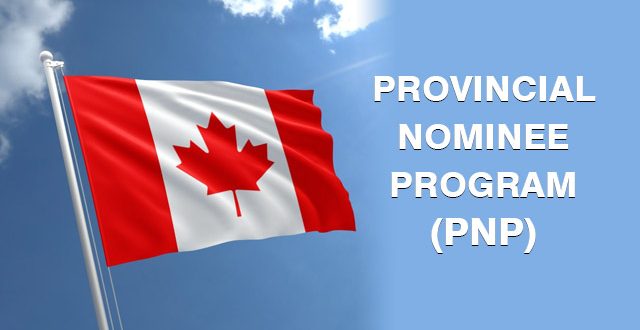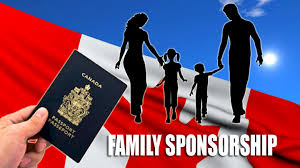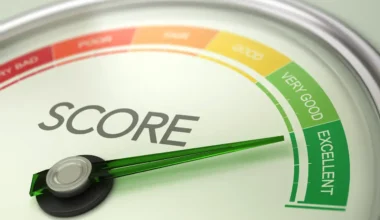Published on May 7, 2025
Introduction:
The IRCC application process can seem overwhelming to first-time applicants, but thoroughly understanding each step of the application process significantly improves outcomes. This comprehensive guide breaks down the complex procedures established by Immigration, Refugees and Citizenship Canada (IRCC) into manageable steps, providing actionable insights based on both official guidelines and real client experiences. Whether you’re pursuing permanent residence through Express Entry, Provincial Nominee Programs, family sponsorship, or beginning with temporary residence, mastering the IRCC application process is your crucial first step toward Canadian immigration success.
 The Express Entry IRCC Application Process: A Two-Stage Journey
The Express Entry IRCC Application Process: A Two-Stage Journey
Express Entry—Canada’s flagship immigration system—features a distinctive two-stage IRCC application process that confuses many first-time applicants. Understanding this structure is essential for successful navigation.
Stage 1: Creating Your Express Entry Profile
The initial phase of the Express Entry IRCC application process involves creating an online profile in the IRCC portal. This profile functions as a declaration of interest rather than a formal application, requiring the following information:
Personal Information Requirements:
- Biographical data
- Passport details
- Contact information
- Family composition
Qualification Details:
- Education history with corresponding ECA reports
- Language test results (IELTS/CELPIP/TEF/TCF)
- Work experience details
- Canadian job offers (if applicable)
- Provincial nominations (if applicable)
Supporting Elements:
- Settlement funds declaration
- Canadian experience declaration (if applicable)
- Family members’ qualifications (if applicable)
This profile generates your Comprehensive Ranking System (CRS) score, placing you in the candidate pool. Michelle, a Jamaican financial analyst client, initially received a CRS score of 441 after profile submission. She remained in the pool for three months without an invitation, illustrating the competitive nature of this stage of the IRCC application process.
Common Stage 1 Pitfalls:
- Inaccurate information entry: Even minor discrepancies between your profile and later documentation can lead to misrepresentation concerns
- Omitting potential points: Failing to include all eligible qualifications
- Inadequate language scores: Submitting profiles with below-competitive language results
- Misunderstanding NOC codes: Incorrectly classifying work experience
- Profile abandonment: Failing to monitor or update profiles during extended pool periods
Our client Raj from India initially classified his software development experience under an incorrect NOC code, significantly reducing his CRS score. After correcting this detail in his Express Entry IRCC application profile, his score increased by 38 points, resulting in an invitation in the subsequent draw.
Stage 2: From ITA to Full IRCC Application Submission
Upon receiving an Invitation to Apply (ITA), candidates enter the second and more intensive phase of the Express Entry IRCC application process—formal application submission. This stage converts your expression of interest into a complete permanent residence application with a strict 60-day deadline.
Critical Document Requirements:
- Identity documentation (passports, birth certificates)
- Educational credentials with ECA reports
- Language test results
- Employment reference letters and supporting evidence
- Police clearance certificates from all relevant jurisdictions
- Medical examination results from IRCC-approved physicians
- Digital photographs meeting specific requirements
- Proof of settlement funds (bank statements, investment records)
- Marriage certificates or common-law evidence (if applicable)
- Dependent documentation (if applicable)
The complexity of document gathering in the IRCC application process cannot be overstated. Police certificates alone can require months to obtain from certain countries. Aisha, an Egyptian applicant, needed to coordinate document collection across three countries where she had previously resided, requiring significant advance planning to meet the 60-day submission window.
E-APR Portal Navigation: The Electronic Application for Permanent Residence (e-APR) system used for Express Entry IRCC application submission features specific technical requirements:
- File format restrictions (PDF, JPEG, PNG)
- File size limitations (4MB per file)
- File naming conventions
- Electronic signature requirements
Post-Submission Procedures: After submitting your Express Entry IRCC application, several additional steps occur:
- Acknowledgment of Receipt (AOR)
- Biometrics instruction letter
- Biometrics appointment at designated collection points
- Potential requests for additional documentation
- Background checks and security screening
- Medical admissibility assessment
- Final decision
- Confirmation of Permanent Residence (COPR) issuance
- Permanent Resident visa issuance (if applicable)
Carlos, a Venezuelan engineer, received his AOR within days of submission but waited eight months for final approval of his IRCC application—highlighting the varying processing timeframes applicants experience.
 Provincial Nominee Programs: The Dual IRCC Application Process
Provincial Nominee Programs: The Dual IRCC Application Process
Provincial Nominee Programs (PNPs) involve a unique dual-stage IRCC application process that combines provincial and federal procedures.
Understanding PNP Streams and Structures
Before initiating the IRCC application process for provincial nomination, understanding the category distinctions is crucial:
Express Entry-Aligned PNP Streams:
- Require active Express Entry profiles
- Provide 600 additional CRS points upon nomination
- Follow streamlined processing timelines
Base PNP Streams:
- Operate independently from Express Entry
- Typically address specific provincial labor needs
- Often have lower language or experience requirements
- Follow standard IRCC application processing timelines
Each province administers PNP streams differently, creating significant variation in the IRCC application process. For instance, British Columbia operates a points-based invitation system similar to Express Entry, while Manitoba evaluates connections to the province through a unique ranking framework.
The Provincial Application Phase
The initial provincial phase of the PNP IRCC application process varies by jurisdiction but typically includes:
Expression of Interest (EOI) Systems:
- Online profile creation in provincial portals
- Provincial points assessment
- Invitation rounds specific to each province
Provincial Application Requirements:
- Education and experience documentation
- Language test results
- Settlement plans specific to the nominated province
- Employment offers (for employer-driven streams)
- Business plans (for entrepreneur streams)
- Provincial connection evidence (family ties, previous study/work)
Provincial Processing Considerations:
- Application fees ($300-$1,500 depending on province)
- Processing times (2-24 months depending on stream and province)
- Interview requirements (for certain streams)
Sunita, an Indian nurse, applied through Saskatchewan’s International Healthcare Worker stream. Despite meeting all qualifications, her provincial IRCC application remained in processing for 14 months—significantly longer than the published estimates—before receiving nomination.
The Federal Phase: After Provincial Nomination
Upon receiving provincial nomination, candidates must complete the federal phase of the IRCC application process:
For Express Entry-Aligned Nominations:
- Nomination is electronically linked to Express Entry profile
- 600 CRS points are automatically added
- Candidate typically receives ITA in next Express Entry draw
- Proceeds through standard Express Entry second stage
For Base PNP Nominations:
- Paper or online application (depending on province)
- Similar document requirements to Express Entry
- Longer processing times (currently averaging 15-19 months)
- Manual submission of provincial nomination certificate
The dual-stage PNP IRCC application process often creates confusion for applicants. Ahmad, a Syrian chef nominated by New Brunswick, mistakenly believed his provincial approval constituted complete permanent residence approval. He later learned that the federal IRCC application process was still required, extending his immigration timeline by more than a year.
Family Sponsorship: Relationship-Based IRCC Applications
 Family reunification programs follow distinct IRCC application processes based on relationship categories and sponsor eligibility.
Family reunification programs follow distinct IRCC application processes based on relationship categories and sponsor eligibility.
Spousal/Partner Sponsorship IRCC Application Process
The IRCC application process for spousal sponsorship involves simultaneous submission of sponsor and applicant documents:
Sponsor Requirements:
- Proof of Canadian citizenship or permanent residence
- Income verification (except for spouse/partner sponsorship)
- Undertaking of financial responsibility
- Background and eligibility checks
Applicant Requirements:
- Relationship evidence appropriate to category
- Standard medical, security, and background checks
- Biometric data submission
Relationship Evidence Considerations:
- Marriage certificates or common-law documentation
- Shared financial responsibilities
- Cohabitation evidence
- Communication records
- Photographs and travel documentation
- Testimonials from family/friends
The spousal sponsorship IRCC application process evaluates both sponsor eligibility and relationship genuineness. Maria and Thomas, a Brazilian-Canadian couple, provided extensive documentation of their two-year relationship, including joint lease agreements, shared insurance policies, and testimony from family members, strengthening their IRCC application’s credibility.
Inland vs. Outland Processing:
- Inland: For applicants legally residing in Canada
- Outland: For applicants outside Canada or those in Canada who prefer consular processing
Open Work Permit Option: Spouses applying inland may qualify for an open work permit while their IRCC application processes—a significant benefit that allows employment during the waiting period.
Parent and Grandparent Sponsorship Specializations
The Parent and Grandparent Program (PGP) follows a unique IRCC application process with limited annual intake:
Interest to Sponsor Pool:
- Annual registration period (typically January)
- Random selection of sponsors from registered pool
- Invitations to submit formal IRCC applications
Financial Requirements:
- Minimum Necessary Income (MNI) for three consecutive tax years
- Additional income requirements based on family size
- Undertaking of financial support for 20 years
Alternative Option: Super Visa: For those unable to pursue permanent residence through the IRCC application process, the Super Visa offers extended temporary stays:
- Multiple entry for up to 10 years
- Stays of up to 5 years per entry
- Private medical insurance requirement
- Simplified application procedure compared to permanent residence
The competitive nature of the PGP creates significant challenges. The Nguyen family attempted for three consecutive years to sponsor their Vietnamese parents before receiving an invitation to submit a formal IRCC application, demonstrating the patience often required for family reunification.
Temporary Residence Leading to Permanent Pathways
Many successful permanent residents begin with temporary IRCC application processes that create stepping stones to permanent status.
Study Permit IRCC Application Process
International students follow a distinct IRCC application process:
Basic Requirements:
- Letter of acceptance from a Designated Learning Institution (DLI)
- Proof of financial capacity for tuition and living expenses
- Study plan outlining educational goals
- Language proficiency evidence
- Ties to home country demonstrating temporary intent
Post-Graduation Benefits:
- Post-Graduation Work Permit (PGWP) eligibility
- Canadian educational credentials for immigration programs
- Canadian work experience during and after studies
The study permit IRCC application process emphasizes genuine student status and sufficient financial resources. Gabriel, a Brazilian engineering student, provided detailed documentation of his $30,000 CAD in available funds along with a clear study plan connecting his Canadian education to career goals back in Brazil. This comprehensive application resulted in first-attempt approval of his IRCC application.
Work Permit Pathways and Processing
The work permit IRCC application process varies based on program type:
Employer-Specific Work Permits:
- Labour Market Impact Assessment (LMIA) requirement (in most cases)
- Job offer from Canadian employer
- Qualifications matching position requirements
Open Work Permits:
- Available under specific programs (working holiday, post-graduation, spousal)
- Allow employment with any eligible employer
- Typically time-limited with renewal restrictions
International Experience Canada (IEC):
- Country-specific pools and quotas
- Specialized application procedures by category
- Age limitations and participation restrictions
Work permits often serve as crucial stepping stones in the immigration journey. Eun-ji, a Korean graphic designer, initially entered Canada through the IEC program. This experience allowed her to build Canadian work experience, strengthening her subsequent Express Entry IRCC application and resulting in permanent residence approval within 18 months of initial entry.
Addressing Potential Complications in the IRCC Application Process
Even well-prepared applicants may encounter challenges during the IRCC application process. Understanding common complications helps develop effective strategies.
Medical Inadmissibility Considerations
Canada’s Immigration and Refugee Protection Act establishes medical inadmissibility grounds for conditions potentially causing “excessive demand” on health or social services. Navigating these issues requires specialized approaches:
Strategies for Medical Concerns:
- Obtain independent medical assessments before application
- Prepare mitigation plans for identified conditions
- Consider legal counsel for complex medical circumstances
- Research excessive demand threshold (currently $24,995 CAD annually)
Exemption Categories:
- Protected persons (refugees)
- Certain family class applicants (spouses, dependent children)
- Humanitarian and compassionate cases
Lucia, a Colombian professional with a child who has Down syndrome, initially feared medical inadmissibility would prevent her family’s immigration. After consultation with a specialized immigration attorney, she developed a comprehensive care plan demonstrating minimal public service utilization, leading to IRCC application approval despite initial concerns.
Criminal Inadmissibility and Rehabilitation
Past criminal records may impact admissibility but don’t necessarily prevent successful IRCC applications:
Overcoming Criminal Concerns:
- Deemed Rehabilitation (automatic after 10 years for certain offenses)
- Individual Rehabilitation (available 5 years after sentence completion)
- Temporary Resident Permit (for those not yet eligible for rehabilitation)
- Record Suspension or Foreign Pardon (where available)
Marcus, an American applicant with a 15-year-old DUI conviction, initially received an IRCC application rejection. After obtaining legal guidance, he successfully applied for Deemed Rehabilitation, allowing his subsequent Express Entry application to proceed without admissibility concerns.
Proof of Funds Challenges
Financial documentation issues frequently delay IRCC applications:
Common Financial Documentation Problems:
- Insufficient history (less than 6 months)
- Unexplained large deposits
- Unverifiable source of funds
- Joint accounts without clear ownership
- Insufficient total funds
Financial Documentation Best Practices:
- Maintain consistent account balances for 6+ months
- Document source of all significant deposits
- Use personal rather than business accounts
- Include letters from financial institutions
- Translate all non-English/French documents officially
Ahmed, an Egyptian professional, experienced a significant delay in his IRCC application processing due to a large, undocumented deposit appearing just two months before submission. This complication resulted in additional verification requirements, extending his processing time by several months.
Employment Verification Complications
Work experience verification presents frequent challenges in the IRCC application process:
Common Employment Documentation Issues:
- Employers unwilling to provide detailed reference letters
- Defunct companies or inaccessible records
- Self-employment verification difficulties
- Working abroad for Canadian companies
Alternative Documentation Strategies:
- Statutory declarations from colleagues/supervisors
- Employment contracts with position descriptions
- Pay stubs or tax documents demonstrating employment period
- Client testimonials for self-employment
- Industry association memberships
Mei, a Chinese marketing professional, faced difficulties obtaining reference letters when her previous employer closed operations. She successfully provided alternative evidence through former colleague affidavits, tax documents, and project portfolios demonstrating her claimed experience, allowing her IRCC application to progress.
Tracking Your IRCC Application Status
The waiting period after submitting an IRCC application often generates anxiety. Understanding tracking mechanisms helps manage expectations:
Official Status Checking Methods:
- IRCC online accounts (GCKey or Sign-in Partner)
- IRCC web form inquiries
- Application Processing Centre email inquiries
- IRCC Client Support Centre telephone inquiries
Processing Time Considerations:
- Published processing standards vs. actual timelines
- Application complexity impact on processing
- Country-specific security screening variances
- COVID-19 and other exceptional circumstance delays
The tracking phase of the IRCC application process requires patience. Arjun, an Indian professional, submitted his Express Entry application in February 2024 with published processing standards of six months. His actual processing extended to eleven months due to complex employment verification—a common experience despite official timelines.
Status Update Strategies:
- Respect published processing timelines before inquiring
- Document all communication attempts
- Update contact information immediately if changed
- Check spam/junk folders regularly for communications
- Use MP assistance only after reasonable delays
Post-Approval Procedures in the IRCC Application Process
IRCC application approval initiates several final steps before permanent residence activation:
For Applicants Outside Canada:
- Confirmation of Permanent Residence (COPR) document issuance
- Passport submission for permanent resident visa
- Entry deadline compliance (typically 12 months)
- Port of Entry (POE) processing upon arrival
- Permanent Resident card mailing (after arrival)
For Applicants Inside Canada:
- Confirmation of Permanent Residence issuance
- Permanent residence activation appointment
- Permanent Resident card processing
Initial Settlement Considerations:
- Social Insurance Number application
- Provincial health insurance enrollment
- Banking establishment or transition
- Housing arrangements
- School enrollment for children
- Employment search or transition
Maria and Carlos, Venezuelan professionals who received COPR while outside Canada, learned they needed to complete their landing process within 12 months. This timeline influenced critical decisions regarding employment resignation, property disposition, and relocation planning—practical considerations essential for successful immigration completion.
Conclusion
The IRCC application process represents a significant investment of time, resources, and emotional energy. While challenges are inevitable, thorough preparation and accurate information significantly improve outcomes. As we’ve seen through real client examples throughout this guide, understanding both procedural requirements and potential complications creates realistic expectations and effective strategies.
Remember that each IRCC application journey is unique. Your specific circumstances may introduce variations not covered in this general overview. For personalized guidance tailored to your situation, consulting with a Regulated Canadian Immigration Consultant (RCIC) or immigration attorney can provide clarity for complex cases.
At Dalitzo Services, our years of experience guiding clients through successful IRCC application processes have taught us that knowledge, preparation, and perseverance form the foundation of Canadian immigration success. With the right information and support, your Canadian dreams are within reach—the journey begins with that first IRCC application submission.
Official Sources:
- Immigration, Refugees and Citizenship Canada (IRCC) Application Guidelines
- IRCC Document Checklist Resources
- Medical Inadmissibility Information
- IRCC Processing Times Tool




